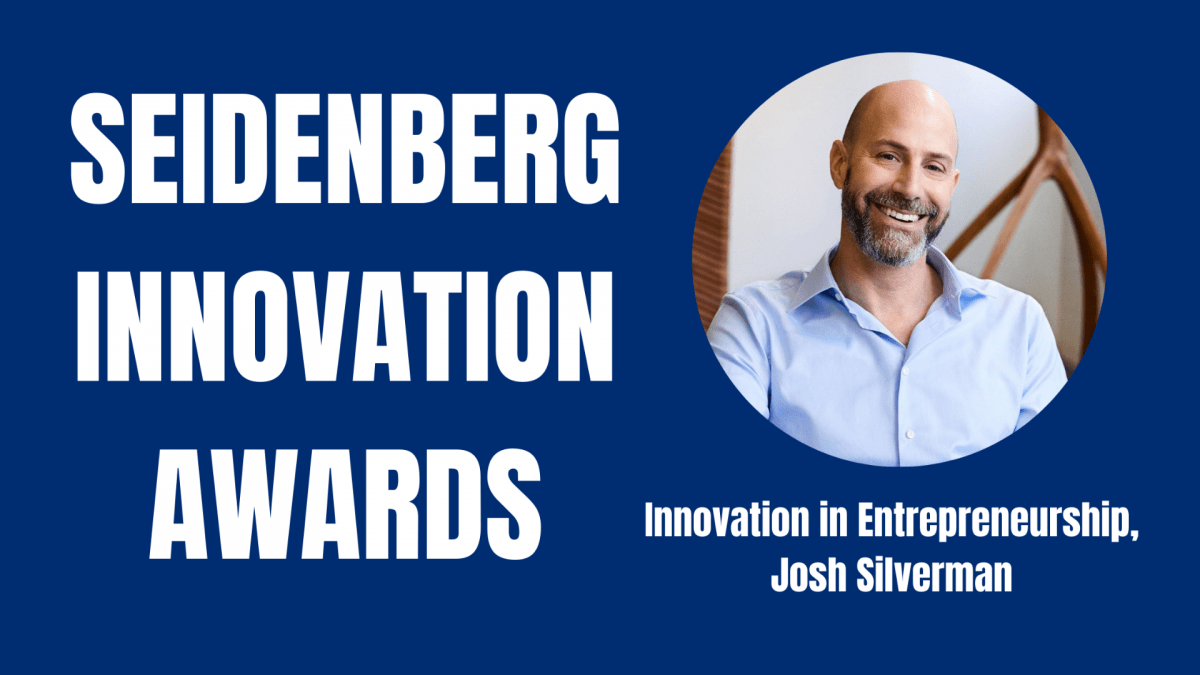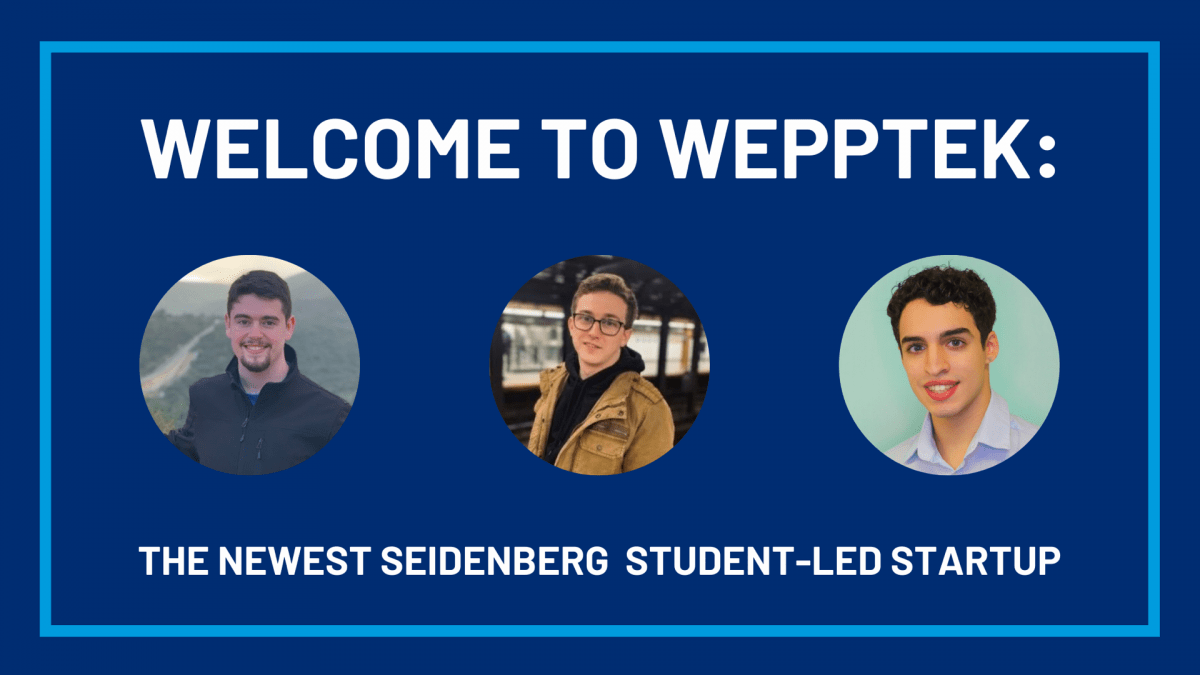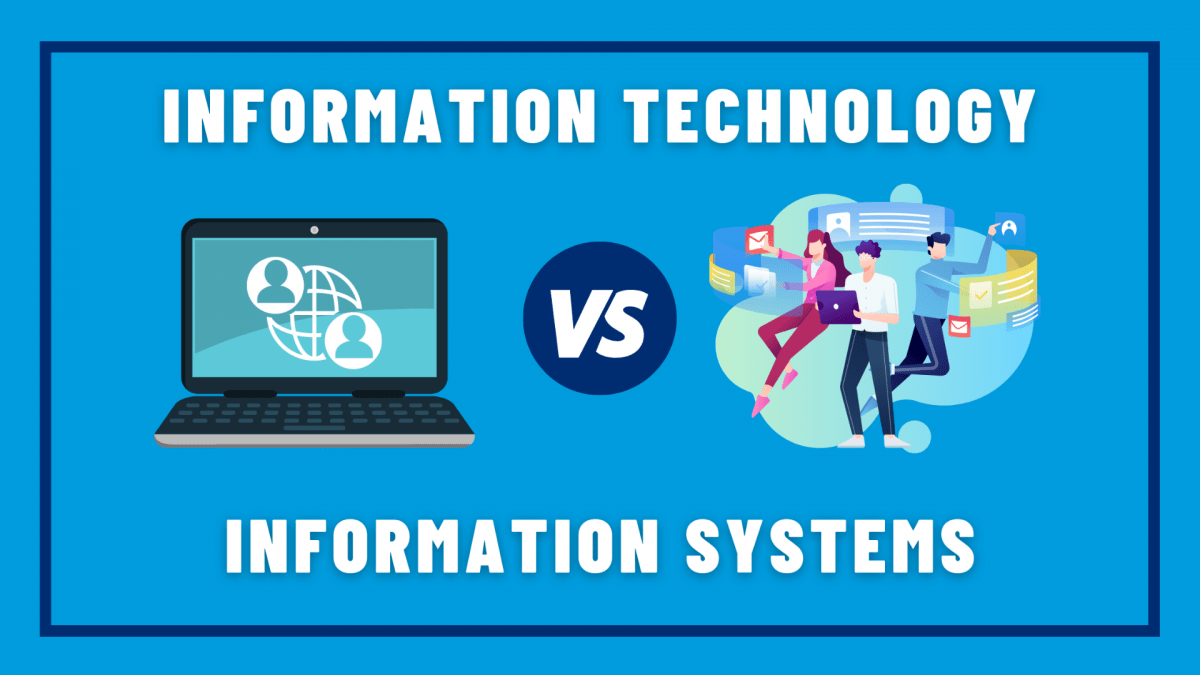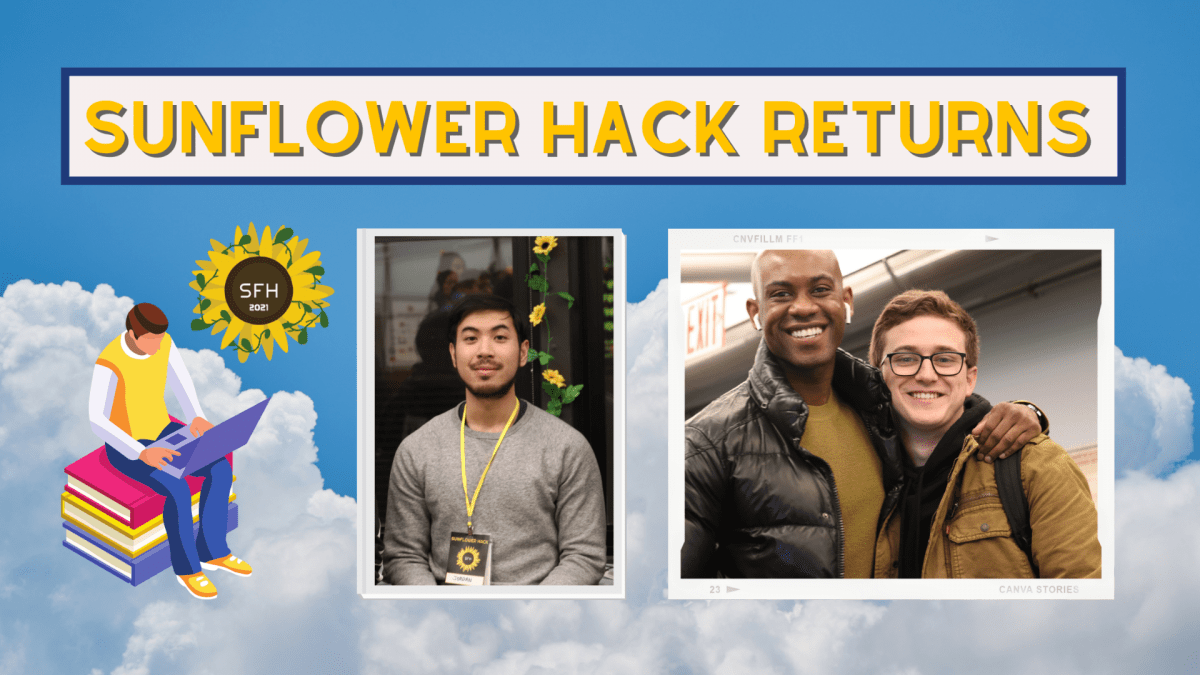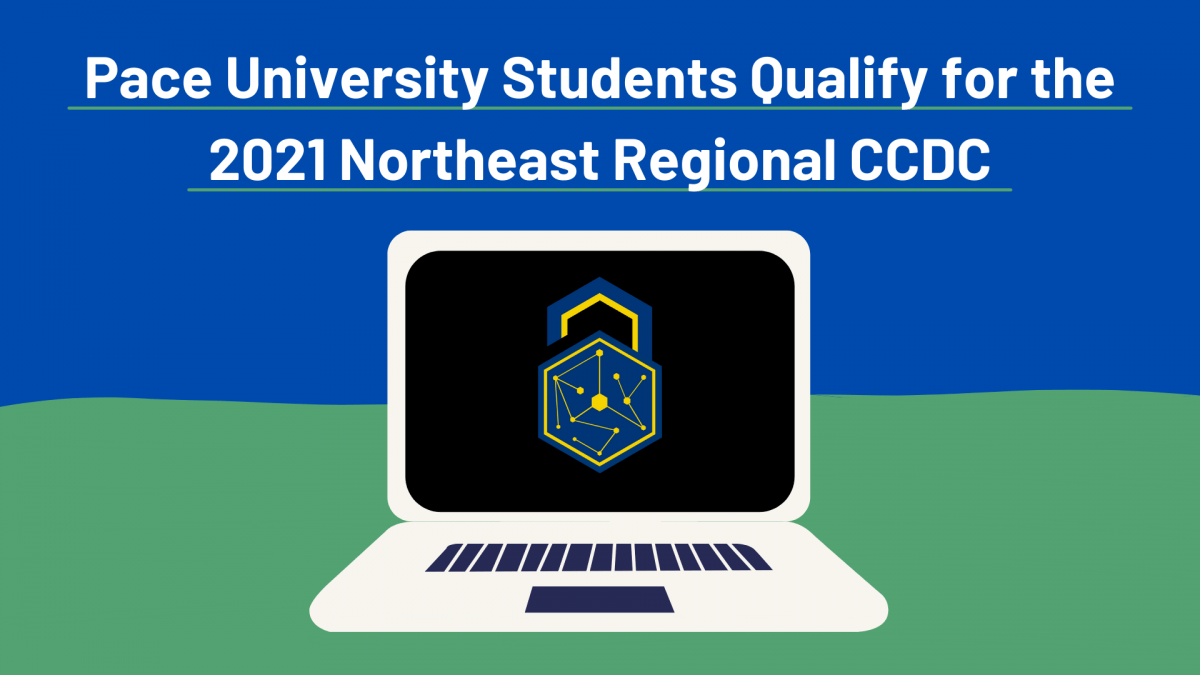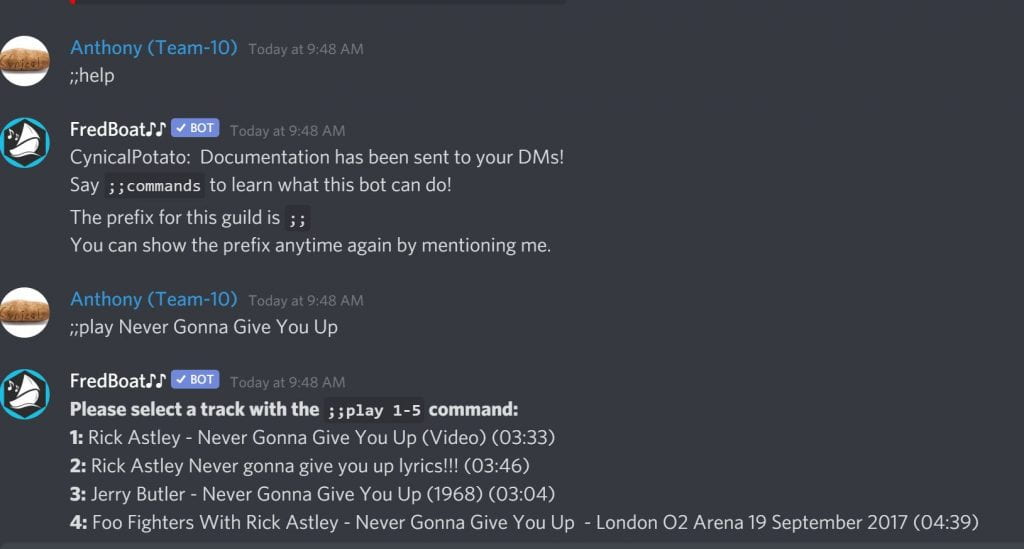Seidenberg students collaborated to experience human-centered design product development on November 17 at the NYC Design Factory (NYCDF) Design Thinking Workshop. Attendees got tasked with the following challenge: brainstorming solutions to prevent incomplete or biased data in product development.
Professor Andreea Cotoranu, Director of the NYCDF, describes design thinking as a “human-centered approach to problem-solving that is creative and resourceful.” By introducing students to the cycle and process of design thinking, Andreea notes that the NYCDF aims to prepare students to “tackle problems that are difficult to define and inherently unsolvable, such as justice or gender equality.”
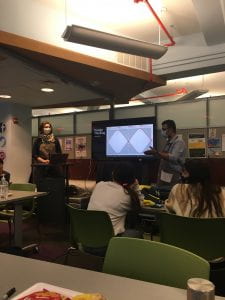
Along with Andreea, facilitators Dhruv Gandhi and Krystyn Gutu kicked off the workshop by introducing attendees to design principles and examples of biased data in product development. These examples included everything from the gender bias present in pockets to the racial prejudice shown in AI development. After exposure to unconscious bias, teams got tasked to choose a problem driven by incomplete and biased data to begin the design thinking process.
First, teams got asked to empathize with their potential users. Each group centered on an important issue: closing the gender gap in the automotive industry, better housing for international students, and increasing transparency with the gendered wage gap. By empathizing with their target audiences, students were able to better brainstorm solutions for the ideation phase. Once all team members had the opportunity to share their thoughts, they moved on to the prototype phase. Teams shared their mobile app and physical prototypes with neighboring teams to obtain notes and suggestions. Once completed, teams celebrated the completion of the Design Factory Workshop with a group activity and photo.
“We were delighted to work with a group of enthusiastic students who challenged themselves to assume a beginner’s mindset, interview for empathy, generate lots of ideas, prototype, and to share their conceptual ideas,” shared Andreea.
Aastha Bhadani, an MS in Information Systems student, attended the workshop to gain more experience in problem-solving. Her team worked on a solution for better housing for international students. She explains that this opportunity got her to creatively problem solve in wholly new ways.

“I learned to apply design thinking principles to ensure that a solution does not only align with technology but is also feasible,” Aastha said. “The workshop threw light on understanding the full design process from inspiration to implementation and transforming an idea into an economically viable and innovative product or service.”
All students are highly encouraged to attend the Shenkar Jamweek, a 4-day international hackathon for interdisciplinary problem-based learning, from February 14 to 17. The event will include students from the Shenkar Design Factory and the Frisian Design Factory. More information will be available on Seidenberg’s social media soon.



